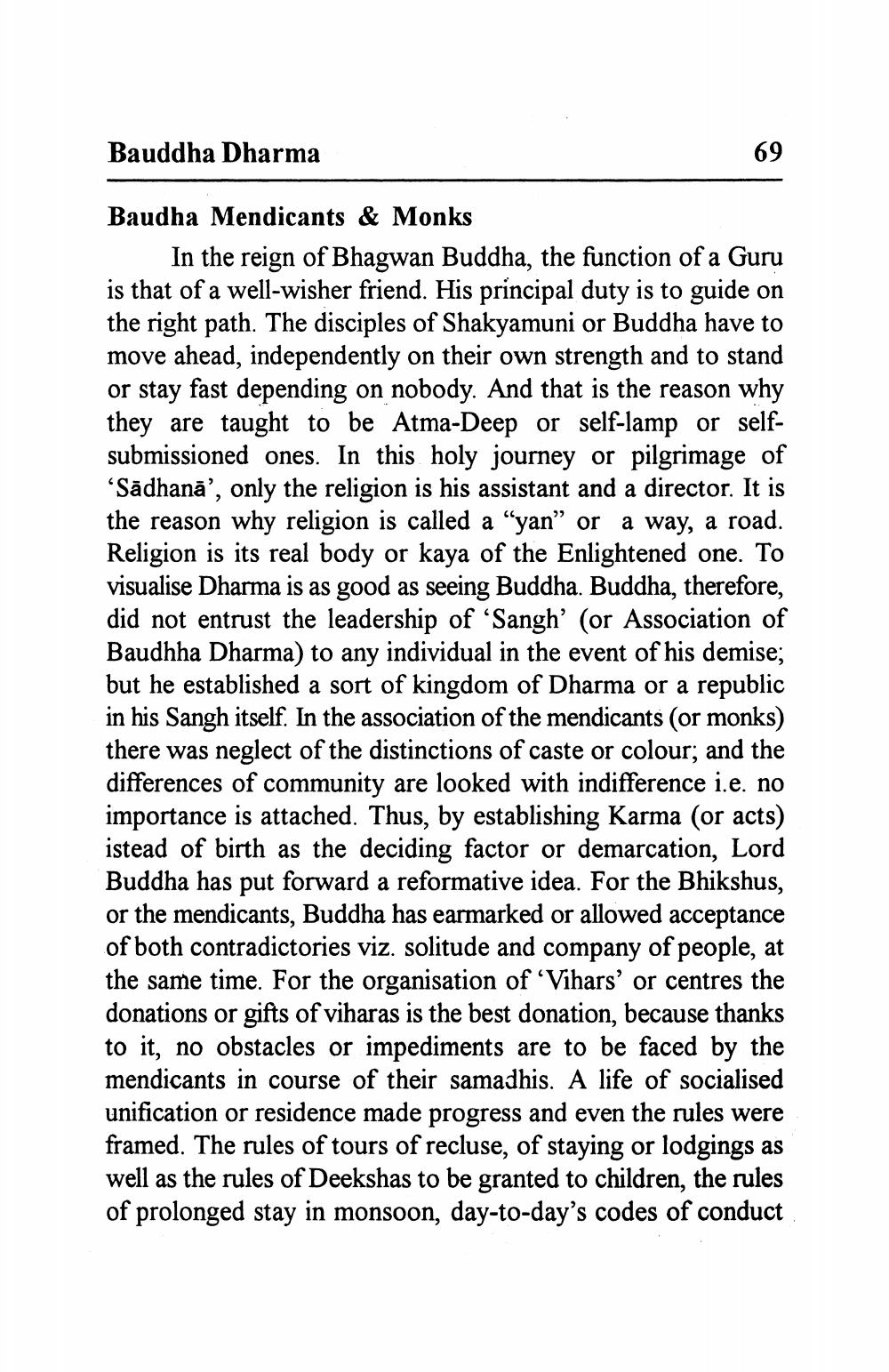________________
Bauddha Dharma
69
Baudha Mendicants & Monks
In the reign of Bhagwan Buddha, the function of a Guru is that of a well-wisher friend. His principal duty is to guide on the right path. The disciples of Shakyamuni or Buddha have to move ahead, independently on their own strength and to stand or stay fast depending on nobody. And that is the reason why they are taught to be Atma-Deep or self-lamp or selfsubmissioned ones. In this holy journey or pilgrimage of 'Sadhana', only the religion is his assistant and a director. It is the reason why religion is called a "yan" or a way, a road. Religion is its real body or kaya of the Enlightened one. To visualise Dharma is as good as seeing Buddha. Buddha, therefore, did not entrust the leadership of 'Sangh' (or Association of Baudhha Dharma) to any individual in the event of his demise; but he established a sort of kingdom of Dharma or a republic in his Sangh itself. In the association of the mendicants (or monks) there was neglect of the distinctions of caste or colour; and the differences of community are looked with indifference i.e. no importance is attached. Thus, by establishing Karma (or acts) istead of birth as the deciding factor or demarcation, Lord Buddha has put forward a reformative idea. For the Bhikshus, or the mendicants, Buddha has earmarked or allowed acceptance of both contradictories viz. solitude and company of people, at the same time. For the organisation of 'Vihars' or centres the donations or gifts of viharas is the best donation, because thanks to it, no obstacles or impediments are to be faced by the mendicants in course of their samadhis. A life of socialised unification or residence made progress and even the rules were framed. The rules of tours of recluse, of staying or lodgings as well as the rules of Deekshas to be granted to children, the rules of prolonged stay in monsoon, day-to-day's codes of conduct




